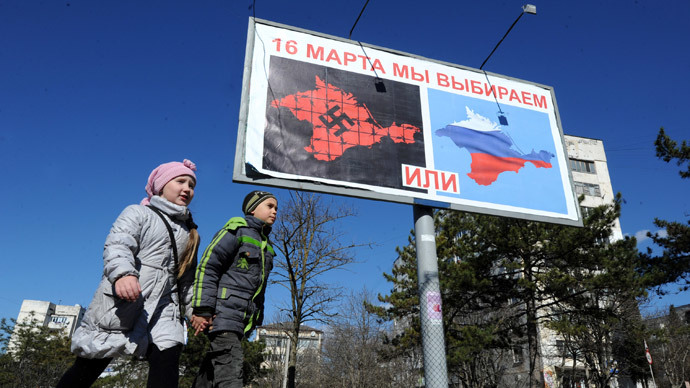Who undermines the Budapest Memorandum on Ukraine?

At one of my meetings in London on Wednesday my interlocutors asked me about the future of the Budapest Memorandum of 5 December 1994.
This document is widely seen as an agreement under which Ukraine relinquished its nuclear weapons in exchange for guarantees of security and territorial integrity provided by Russia, the United States and the United Kingdom. I explained all the details but probably the issue is also of interest to the wider public.
It was claimed in Kiev that Russia allegedly violated its commitments under the Budapest Memorandum in what relates to Ukraine's sovereignty and territorial integrity. We cannot accept it whatsoever. The government in Kiev, which came to power following the unconstitutional coup, essentially undermined Ukraine's unity itself by its policies, most notably towards national minorities. The coup inflicted a huge blow on Ukraine's sovereignty.
In those conditions, the Autonomous Republic of Crimea could not continue to be a part of Ukraine anymore and declared its independence in full compliance with the UN Charter. Following the declaration of its independence, the Republic of Crimea conducted a democratic referendum, which saw almost 97% of the Crimean people voting in favor of their country joining the Russian Federation. In Budapest, we did not make a commitment to force any region of Ukraine to remain a part of the country against the will of its people. Ukraine’s loss of its territorial integrity was a result of complicated internal processes, with which neither Russia nor its obligations under the Budapest Memorandum have anything to do.
It has to be said that the Russian Federation strictly observed, and still observes its obligations under the Budapest Memorandum to respect the sovereignty of Ukraine, including during the many months of political confrontation in Kiev. By the way the same cannot be said about the policy of western countries, who openly neglected this sovereignty during the events on the ‘Maidan’.
Let us remind ourselves of the fact that along with this
memorandum a joint statement was adopted in Budapest by the
leaders of Russia, the United Kingdom the United States and
Ukraine, which, inter alia, confirmed the importance of
commitments undertaken within the OSCE related to countering the
growth of aggressive nationalism and chauvinism. It is absolutely
clear that Ukraine has not fulfilled these obligations and had
been conniving in the growth of extreme nationalism for many
years, which finally led to the self-determination of the Crimean
population.
In short, both Ukraine’s sovereignty and territorial integrity
and the viability of the Budapest Memorandum are matters which
ultimately depend on the good will of the Ukrainian authorities.
The statements, views and opinions expressed in this column are solely those of the author and do not necessarily represent those of RT.
The statements, views and opinions expressed in this column are solely those of the author and do not necessarily represent those of RT.













